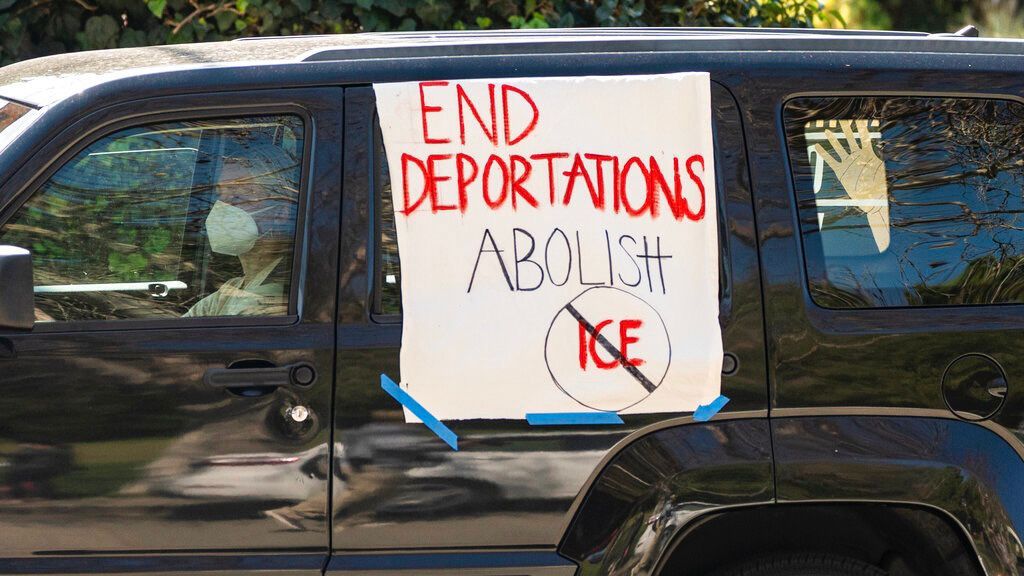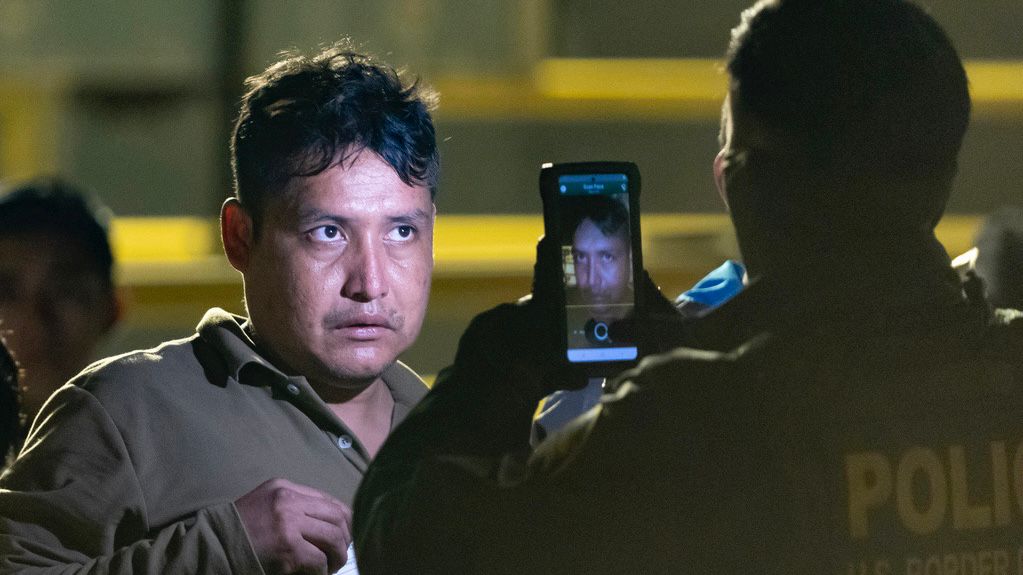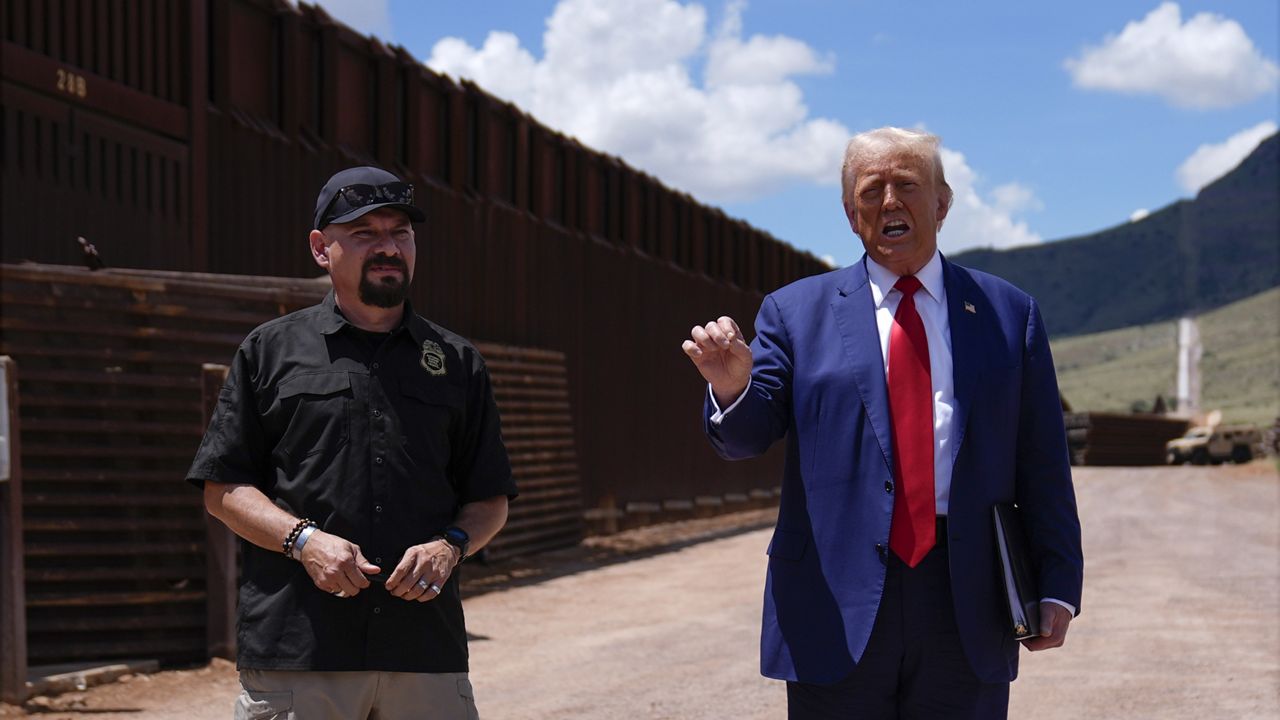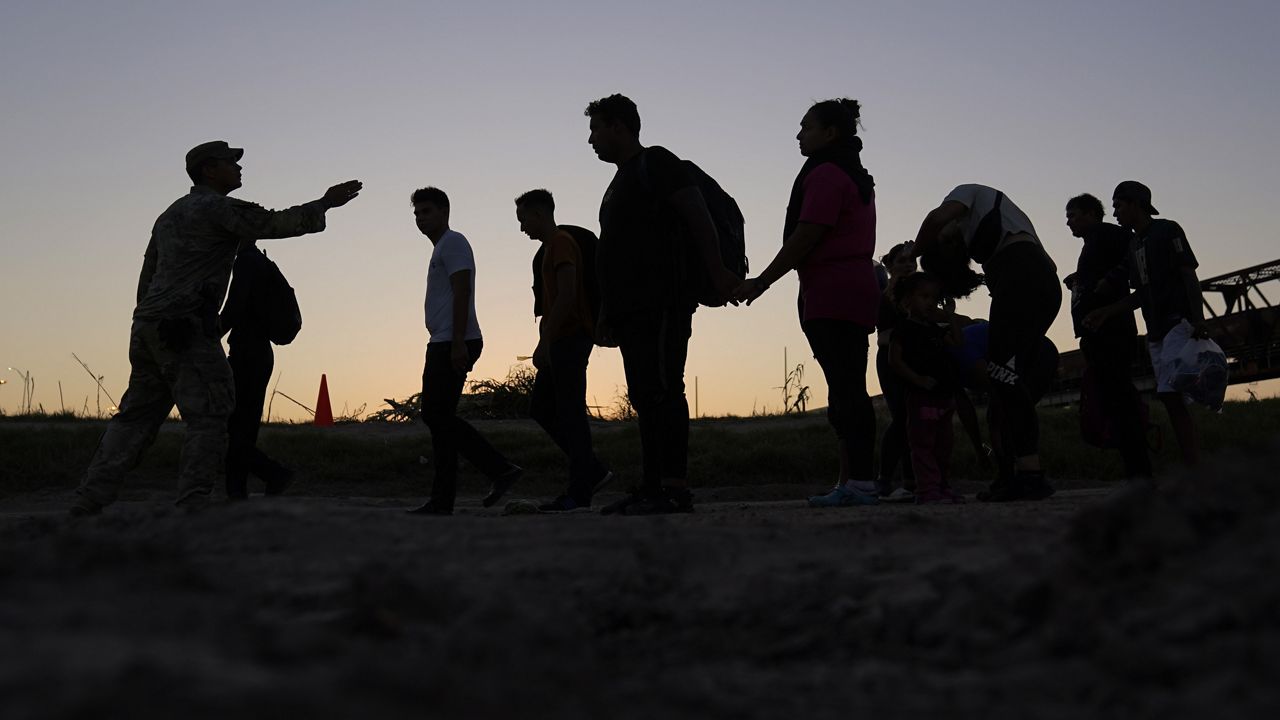With lawmakers largely gone from Washington without reaching a deal on a bipartisan border security package, House Speaker Mike Johnson urged President Joe Biden to take executive action to address issues at the U.S.-Mexico border.
Meanwhile, President Joe Biden spoke to Mexican President Andrés Manuel López Obrador on Thursday about efforts to manage migration, and dispatched two of his top lieutenants to head to Mexico in the coming days to discuss further actions.
In a letter Thursday, Johnson blamed the Biden administration for an increased number of encounters with migrants attempting to enter the country illegally, which he claimed has “caused unspeakable human tragedy for migrants and certainly for our own citizens.”
Johnson cited record amounts of fentanyl being seized by Customs and Border Patrol (CBP) at the border, and charged that “terrorists and dangerous criminals” have entered the country, adding: “We are now more vulnerable to a terrorist attack on our homeland than ever.”
“All of this is the direct result of your administration’s policies,” Johnson admonished. “You have clearly undermined America’s sovereignty and security by ending the Remain in Mexico policy, reinstating catch-and-release, suspending asylum cooperative agreements with other nations, revoking existing restraints on the abuse of parole, and halting border wall construction.”
In fiscal year 2023, Border Patrol detained over 160 individuals on the FBI’s terrorism watch list at the southern border. But that represents less than a tenth of a percent of Border Patrol encounters and, per the Department of Homeland Security, being on the watch list does not necessarily mean one is a terrorist, as family members or associates of suspected terrorists can also end up on that list.
Earlier this year, an executive with the Cato Institute, a libertarian think tank, testified before Congress that the threat of terrorist entry from the U.S.'s southern border is so small as to be miniscule. From 1975 to 2022, nine foreign-born terrorists have entered the U.S. illegally, including three who entered by crossing the U.S.-Mexico border — but none ever perpetrated an attack leading to death or injury.
“Suffice to say, the number of people killed or injured by an illegal immigrant who entered illegally across the U.S.-Mexico border is also zero,” Alex Nowrasteh, the Cato Institute's vice president for economic and social policy studies, told the House Judiciary Committee in September.
Johnson went on to blame Democrats in the Senate for “refusing” to take up the Secure the Border Act, a House-passed package of Republican-backed immigration priorities, as well as for leaving Washington without an agreement on a border security deal.
“While a bipartisan group of Senators has begun extensive negotiations over the past few weeks to try to find a compromise, they have not yet been able to finalize an agreement,” the Louisiana republican wrote.
“Statutory reforms designed to restore operational control at our southern border must be enacted, but the crisis at our southern border has deteriorated to such an extent that significant action can wait no longer,” he continued. “It must start now, and it must start with you.”
Johnson urged the president to take a number of executive actions, including ending the catch-and-release program, restricting parole, pursuing new and restoring old cooperative asylum agreements, expanding the use of expedited removal to screen more asylum-seekers and “immediately” renewing construction of a border wall.
Lawmakers left Washington without finalizing a deal on immigration reform, but the top Democrat and Republican in the Senate said this week that they are “committed” to reaching an accord in the new year.
“Bipartisan border security negotiations are essential to the Senate’s efforts to address critical national security priorities,” Senate Majority Leader Chuck Schumer, D-N.Y., and Minority Leader Mitch McConnell, R-Ky., said in a statement. “Our colleagues are making encouraging progress on this front.”
Congressional Republicans are adamant that they will not pass new aid for Ukraine without significant border policy changes.
Negotiations on have gone back and forth in recent weeks, with Sens. Chris Murphy, D-Conn., James Lankford, R-Okla., and Kyrsten Sinema, I-Ariz., leading the charge, working with Homeland Security Secretary Alejandro Mayorkas and Biden administration officials. While they did not reach an agreement before leaving for the holiday recess, the lawmakers said they were making progress and talks would continue over the break.
Meanwhile, President Biden spoke to Mexican President Andrés Manuel López Obrador on Thursday about efforts to manage migration, White House National Security Council spokesperson John Kirby told reporters at a briefing on Thursday.
According to Kirby, the two leaders "agreed that additional enforcement actions are urgently needed so that key ports of entry can be reopened across our shared border," with Biden urging Mayorkas, Secretary of State Antony Blinken and White House Homeland Security Adviser Liz Sherwood Randall to travel to Mexico "in the coming days to meet with President López Obrador and his team to discuss further actions that can be taken together to address current border challenges."
"Their visit will really be about getting at the migratory flows and talking to President Lopez Obrador and his team about what more we can do together," Kirby said.
One of the things the two leaders discussed, Kirby noted, was "trying to work on getting at the root causes of migration," citing political and domestic instability in the region and pointing the recent agreement the U.S. reached with Venezuela in exchange for electoral reforms in the country.
Kirby told reporters that a "big part" of President Biden's national security request, which also includes Israel and Ukraine aid, is funding to boost the number of CBP officers at the border, as well as increase asylum court officers and enhance physical security measures.
"Part and parcel of the supplemental request was very much recognizing that more needs to be done on border security," Kirby said.
"There’s lots we’re doing, but there’s probably more we can be doing," he later added. "And in order to do it effectively, you've got to be in full partnership with Mexican authorities. We have been. There’s been terrific cooperation, we’re proud of that, and ... I think it can be expanded, given the record levels of migrants that we’re seeing come across."
Spectrum News' Joseph Konig and David Mendez contributed to this report.









